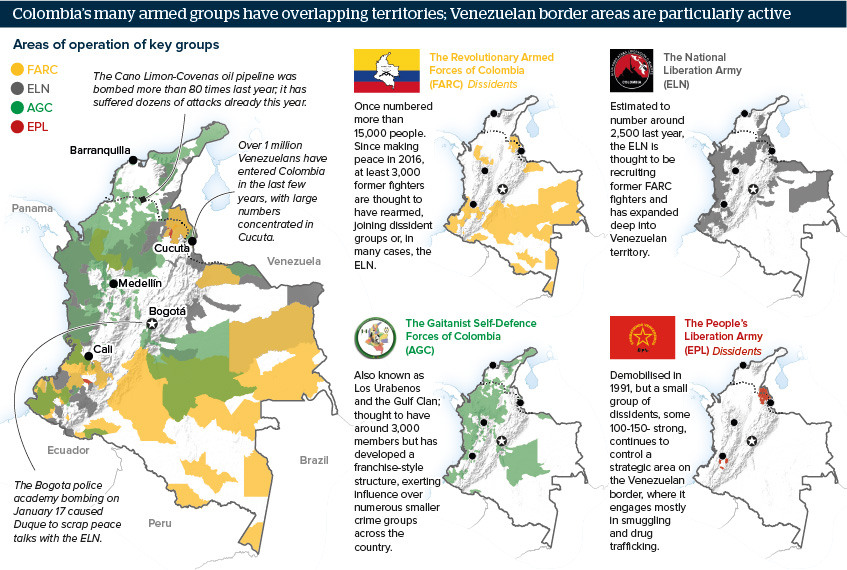Peace in Colombia is far from secured
The 2016 peace deal between the government and the FARC was a major achievement, but armed conflict is by no means over
Source: Indepaz; Insight Crime; media reports
Outlook
President Ivan Duque’s criticism of Colombia’s 2016 peace deal is undermining faith in the government’s commitment to peacebuilding, while military scandals and the regular murders of former guerrillas raise questions about the ability or willingness of the state to protect demobilised members of the Revolutionary Armed Forces of Colombia (FARC), driving many to re-arm.
The collapse of peace talks with the National Liberation Army (ELN) in January was arguably inevitable but has left one of Colombia’s largest guerrilla armies intact and apparently expanding, while numerous other armed groups continue to operate nationwide. Peace in Colombia is a long way off.
Impacts
- Hardline state security strategies are necessary, but their near exclusive use and the neglect of softer measures will exacerbate violence.
- Persistent attacks by state forces have reportedly weakened the AGC but risk seeing it splinter violently into many factions.
- Continued internal population displacement will worsen pressure on authorities struggling to assist more than 1 million Venezuelan incomers.
- The recent appointment of a general suspected of ordering murders to the head of the army will undermine faith in the security forces.
See also
- COVID-19 crisis will not advance Colombia peace hopes - Mar 31, 2020
- Low oil reserves pose challenges for Colombia - Feb 27, 2020
- Venezuelan migrants are long-term Latin American issue - Oct 21, 2019
- ‘Pelusos’ demise will not improve security in Colombia - Sep 30, 2019
- ‘FARC’ revival poses major security threat in Colombia - Sep 5, 2019
- Colombia violence to rise as elections approach - Aug 16, 2019
- Fresh scandals threaten peace progress in Colombia - May 31, 2019
- More graphic analysis
